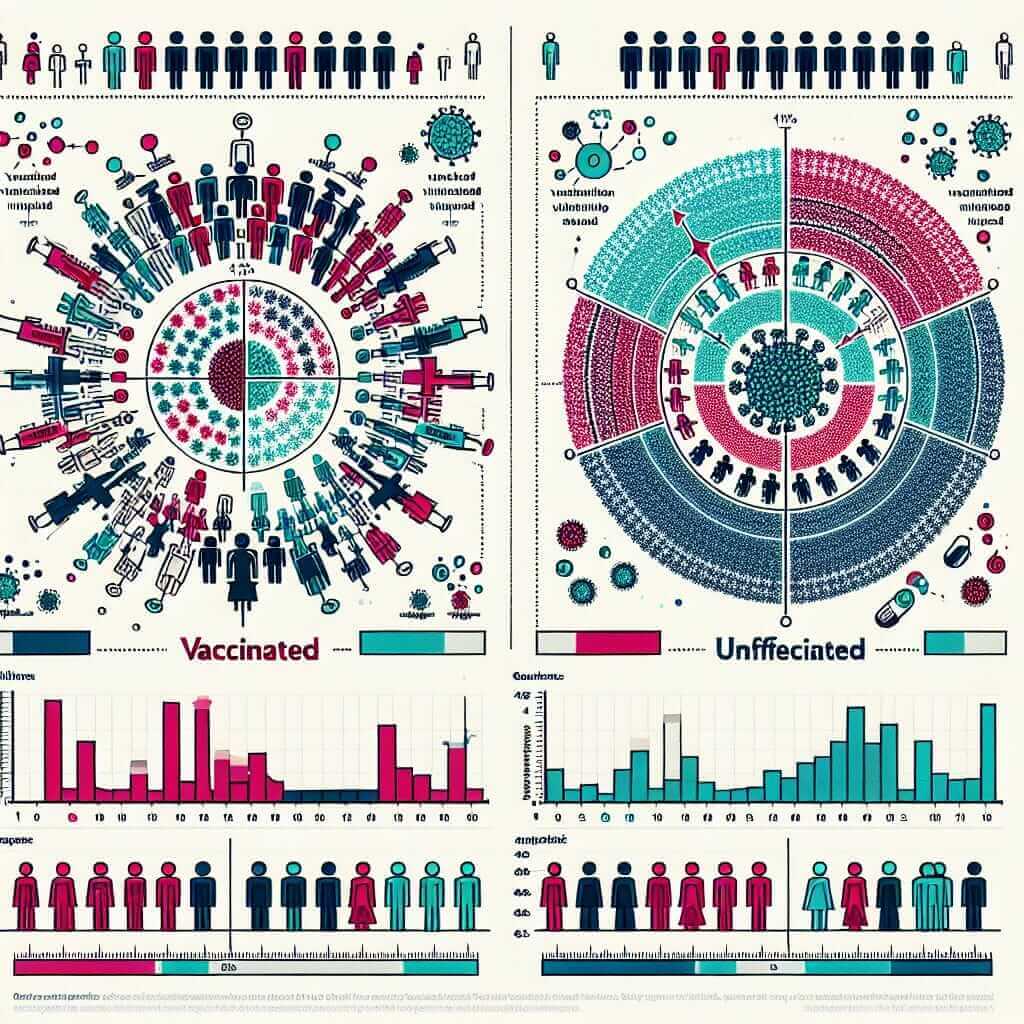“Vaccine efficacy” is a term you’re likely to encounter in various contexts, from scientific articles to everyday news. For IELTS preparation, particularly in the Reading and Listening sections, a strong grasp of this term and its related vocabulary is essential. Understanding “vaccine efficacy” can also be valuable for the Writing and Speaking sections, especially if the topic touches upon health or scientific advancements.
Here are some synonyms and related terms to “vaccine efficacy”:
- Effectiveness (noun): /ɪˈfektɪvnəs/ – The degree to which something produces a desired result.
Example: The effectiveness of the new vaccine is still being studied. - Potency (noun): /ˈpoʊtənsi/ – The power of something to produce a strong effect.
Example: The potency of the vaccine decreases over time. - Protection rate (noun): /prəˈtɛkʃən reɪt/ – The percentage of people who are protected from a disease after being vaccinated.
Example: The protection rate of the vaccine is around 95%.
Understanding “Vaccine Efficacy”
What does “Vaccine Efficacy” mean?
“Vaccine efficacy” refers to how well a vaccine works under ideal conditions, like in a controlled clinical trial. It indicates the percentage reduction in disease incidence among a vaccinated group compared to an unvaccinated group.
Pronunciation
- Vaccine: /ˈvæk.siːn/
- Efficacy: /ˈef.ɪ.kə.si/
Usage in a Sentence
- The vaccine efficacy of the Moderna COVID-19 vaccine was found to be 94.1% in preventing symptomatic illness.

“Vaccine Efficacy” in IELTS
Relevance to IELTS
This term frequently appears in IELTS Reading passages discussing health, medicine, or scientific breakthroughs. It might also emerge in Listening sections featuring lectures or discussions on similar topics.
Sample IELTS Question (Reading)
Passage excerpt: ” …The study found a vaccine efficacy of 70% against the new variant, meaning that the vaccine reduced the risk of symptomatic infection by 70%…”
Question: What was the main finding of the study regarding the vaccine’s effect on the new variant?
Using “Vaccine Efficacy” in Your Answers
While you wouldn’t use “vaccine efficacy” to describe your personal experience, you can use it to demonstrate your understanding of scientific texts in the Reading section. In Speaking or Writing, you can use it to discuss general health topics or scientific advancements.
Example (Speaking Part 3):
Examiner: Do you think vaccines are important?
Candidate: Absolutely. Vaccines have been instrumental in eradicating diseases and improving public health. High vaccine efficacy is crucial to ensure widespread protection and prevent outbreaks.
Expanding Your Vocabulary
Here are some phrases related to “vaccine efficacy”:
- Clinical trials: /ˈklɪn.ɪ.kəl ˈtraɪ.əlz/ – Research studies conducted on human subjects to assess the safety and effectiveness of new medical interventions.
Example: The vaccine underwent rigorous clinical trials before being approved. - Placebo-controlled: /pləˈsiː.boʊ kənˈtroʊld/ – A type of study where one group receives the actual treatment and the other group receives a placebo (an inactive substance).
Example: The study was placebo-controlled to determine the true effect of the vaccine. - Immunogenicity: /ˌɪm.jə.noʊ.dʒəˈnɪ.sɪ.ti/ – The ability of a vaccine to stimulate an immune response in the body.
Example: Researchers are studying the immunogenicity of the vaccine in different age groups. - Adverse events: /ˈæd.vɜːrs ɪˈvents/ – Any unwanted or unexpected medical occurrences that happen during or after a medical treatment.
Example: The most common adverse events reported after vaccination were mild pain and redness at the injection site.
Conclusion
Mastering terms like “vaccine efficacy” and its related vocabulary is crucial for achieving a high score in the IELTS exam. By understanding the meaning, usage, and synonyms of these words, you will be well-equipped to tackle a wide range of questions and express yourself effectively on health and science-related topics. Remember to practice using this vocabulary in context to reinforce your understanding.